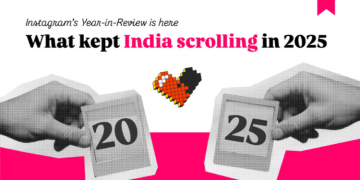In a fast-changing landscape where people have utilized and adapted quick-commerce and online platforms, brands are constantly looking for innovative ways to engage with their customers on a larger scale. With SMS being the long-standing option for communication, now RCS has come into play and becoming an alternative and advanced option for Business messaging. Though both SMS and RCS have their pros and cons, some brands still wonder which channel they should use to drive better consumer engagement and traffic.
Market Penetration of SMS and RCS
SMS (Short Message Service) is a long-standing messaging technology, widely used by many e-commerce, retailers, food delivery brands, etc., as it is a reliable tool for quickly connecting with consumers with time-sensitive offers. Despite the limitation of no multimedia support, it brings an open rate of more than 90%.
On the other hand, RCS (Rich Communication Services) is a new-generation messaging tool specially designed to enhance customer communications. The support of multimedia, typing indicators, read receipts, and enhanced brand experiences help many digital brands and businesses provide a dynamic marketing experience.
As of 2024, RCS has seen about 36.4% increase in usage with over 1.4 billion global users. However, around 80% of the market still uses SMS services with nearly 70% of those planning to expand their marketing budget. The shift in marketing strategies from SMS to RCS is characterized by basic text messaging to more interactive and feature-rich communication. Though RCS has many advantages, SMS still remains the most widely used platform worldwide.
Comparative Factors Between SMS and RCS
For marketers understanding the SMS and RCS strategy based on key engagement factors will help them bring a conclusion as to which channel works better for customer engagement for their brand.
Reach and Compatibility:
SMS is a type of channel that works on all types of mobile devices such as Android, iPhone, or even keypad mobile phones., without having to rely on internet connectivity. However, RCS is a channel that only works on some compatible devices and even requires internet connectivity to work. Primarily, RCS is designed to work on Android phones.
Message Delivery Rate:
SMS has an instant delivery rate complementing high open rates, even without an internet connection. RCS on the other hand, has fast open rates however the message delivery rate depends on a stable internet connection.
Engagement element features:
SMS is designed to send plain text messages i.e., it does not support the use of multimedia elements when sending a message. RCS is a channel that supports the use of multimedia elements such as images, videos, GIFs, and even carousels.
Personalization:
SMS supports a simple text format, whereas in RCS one can add company logos and visually creative messages that allow a brand to create its messages according to their customer engagement needs.
Cost and Execution:
SMS is generally easier to implement and a cost-effective option. RCS, alternatively can be a little costly as it supports multimedia use.
Safety and Trust:
SMS is easy to figure out as it is prone to spamming and phishing. Conversely, RCS offers more security and safety with features like verification to help build customer trust.
Choosing between SMS and RCS depends on the needs of a brand like business goal, target audience, and budget.
A brand can choose SMS if:
- They need a cost-effective and reliable option that can help deliver the brand goal just right without any hassle.
- Marketing brands should choose SMS if they want to reach a diverse range of audiences such as urban and rural areas, where people use both advanced and basic keypad mobile phones.
- They require instant message delivery without having to rely on internet connectivity.
- For messages like time-sensitive alerts, OTP, or simple promotional messages, brands can use SMS as these short-form messages do not need to be creative or need any multimedia inserted.
On the other hand, a brand can choose RCS if:
- Marketers who want to target a specific base of audience for instance want to aim at people who use Android phones and have access to a stable internet connection.
- When brands want to reach out to their customers creative messages and make them interactive to ensure a good branding experience for their customers.
- If the Mobile marketing strategy of the brand includes using multimedia in their messages to help drive higher audience reach.
- To build customer trust, they should opt for RCS as it provides more security and privacy if the message contains any sensitive information.
Both SMS and RCS have their strengths and can be used for particular tasks when it comes to creating brand engagement amongst its customers. SMS is a widely used, cost-effective option that is accessible to a larger range of audience to bring higher open rates and quick deliveries. Alternatively, RCS is a channel that offers to engage interesting messaging experiences making it ideal for brands to uplift their communication practices.
A brand can use both SMS and RCS channels for customer engagement. They can use SMS to send instant messages while integrating RCS for high-efficiency engagement where they want to reach out to their customers with engaging messaging. Using a combined approach will help the brand to reach a wider audience covering all types of range of people for instance an e-commerce company can use SMS to send out order confirmation so that the customer can check basic information like the order number, order status, and shipment process and alternatively, they can use RCS to send information like tracking status and any product updates that the customer needs to be informed about.
Another example that can showcase the use of both SMS and RCS is when an event management company is organizing an event so, they can use SMS as a channel to announce the commencement of the event on the other hand they can use RCS to give an attractive preview about the details of the event like a poster with information of day, date and time etc.
By carefully accessing the requirements of the brand and the type of message they want to disseminate. However, with growing technology businesses are leaning towards adopting RCS as it is very crucial to explore potential Digital marketing trends opportunities for bringing engagement to a brand.
(Views are personal)

















